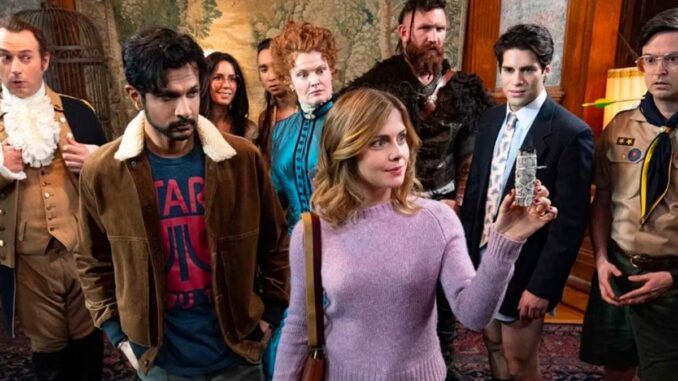
Spirits United: A Fight for Fair Compensation in the Afterlife (and On-Set)
The hit comedy “Ghosts”, a show celebrated for its witty writing and ensemble cast of spectral residents, was nearly derailed by a far more material concern than ectoplasmic energy or colonial grudges: pay parity. The show’s second season wrapped with critical acclaim and skyrocketing viewership, but behind the scenes, a quiet revolution was brewing amongst the undead cast. These weren’t your typical disgruntled actors; these were centuries-old souls, accustomed to enduring, but even ghosts have their limits when it comes to fairness.
The catalyst for this spectral solidarity was a leaked salary sheet. It revealed significant discrepancies in pay between the living and the dead performers, and even among the ghosts themselves. While the living actors were undoubtedly vital to the show’s narrative, the ghostly ensemble felt their contributions, particularly given the specialized skills required for their roles (portraying everything from a Viking to a 1980s scout leader), were undervalued. The realization sparked a ghostly council, a sort of undead union, dedicated to securing equitable compensation for all.
Leading the charge was Hetty Woodstone, the Gilded Age socialite, portrayed with impeccable comedic timing. Hetty, accustomed to influencing society from her earthly perch, channeled her considerable persuasive abilities into organizing her fellow spirits. Her strategy was simple but effective: a unified front, demanding collective bargaining power. The ghosts identified key grievances:
- Pay Discrepancies: Addressing the inequalities between the living and dead cast members, and among the ghosts themselves.
- Residuals: Ensuring that all cast members, regardless of their earthly status, receive fair compensation for reruns and streaming revenue.
- Specialized Skills Recognition: Acknowledging the unique challenges and skills required to portray characters from different historical periods and social backgrounds.
Negotiations with the studio were, unsurprisingly, tense. Initially, the studio executives were skeptical, viewing the ghostly demands as somewhat… ethereal. However, the ghosts held firm. They threatened a variety of (mostly harmless) supernatural disruptions on set, from mysteriously flickering lights to strategic placement of objects in unexpected locations. The living cast, sympathetic to their spectral colleagues, quietly voiced their support, adding further pressure on the studio.
Ultimately, a compromise was reached. While full pay parity wasn’t immediately achieved, the studio agreed to significant salary increases for the ghostly cast, a fairer share of residuals, and recognition of the specialized skills required for their roles. The agreement also included a clause for further review of compensation after each season, ensuring continued progress towards equitable pay. The “Ghosts” undead cast had proven that even in the afterlife, a united voice can make a tangible difference, securing not just a better paycheck, but also a stronger sense of value and respect within the entertainment industry. The saga showcases the power of unionization, especially when the members are all, technically, already dead.